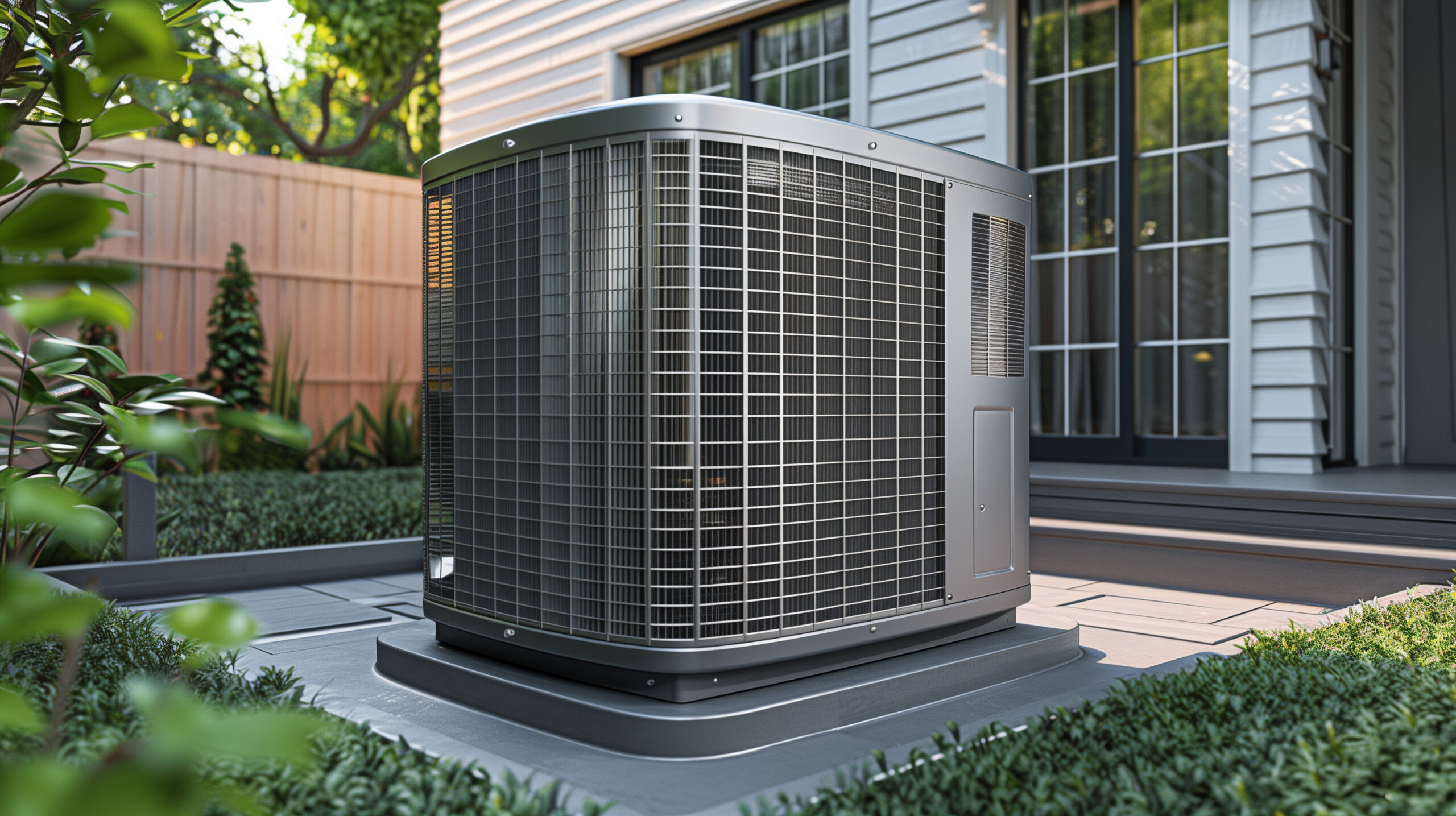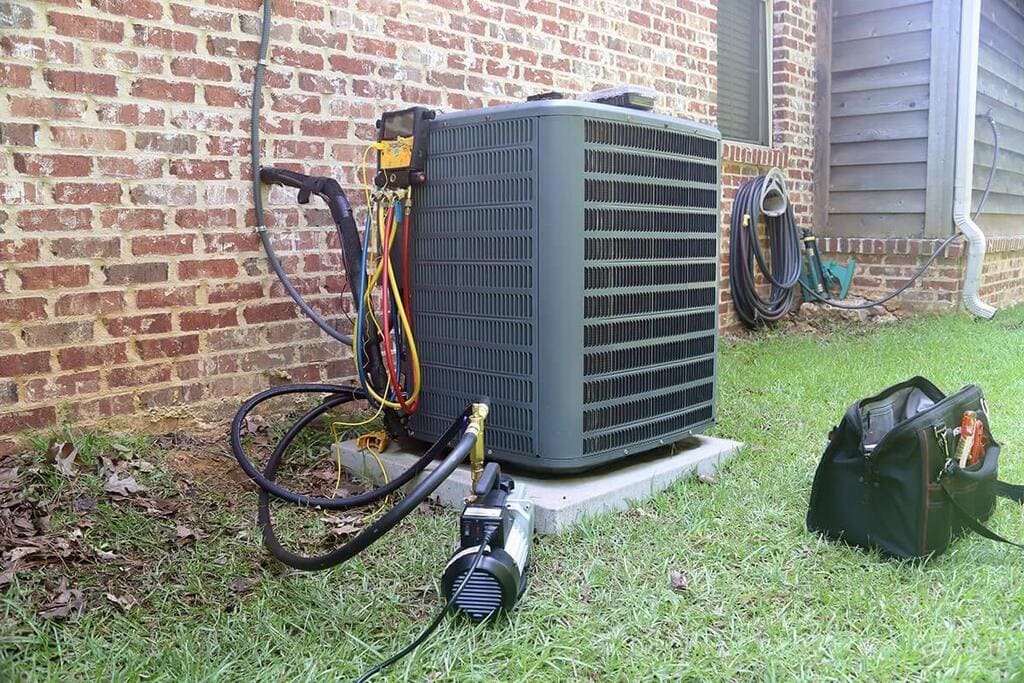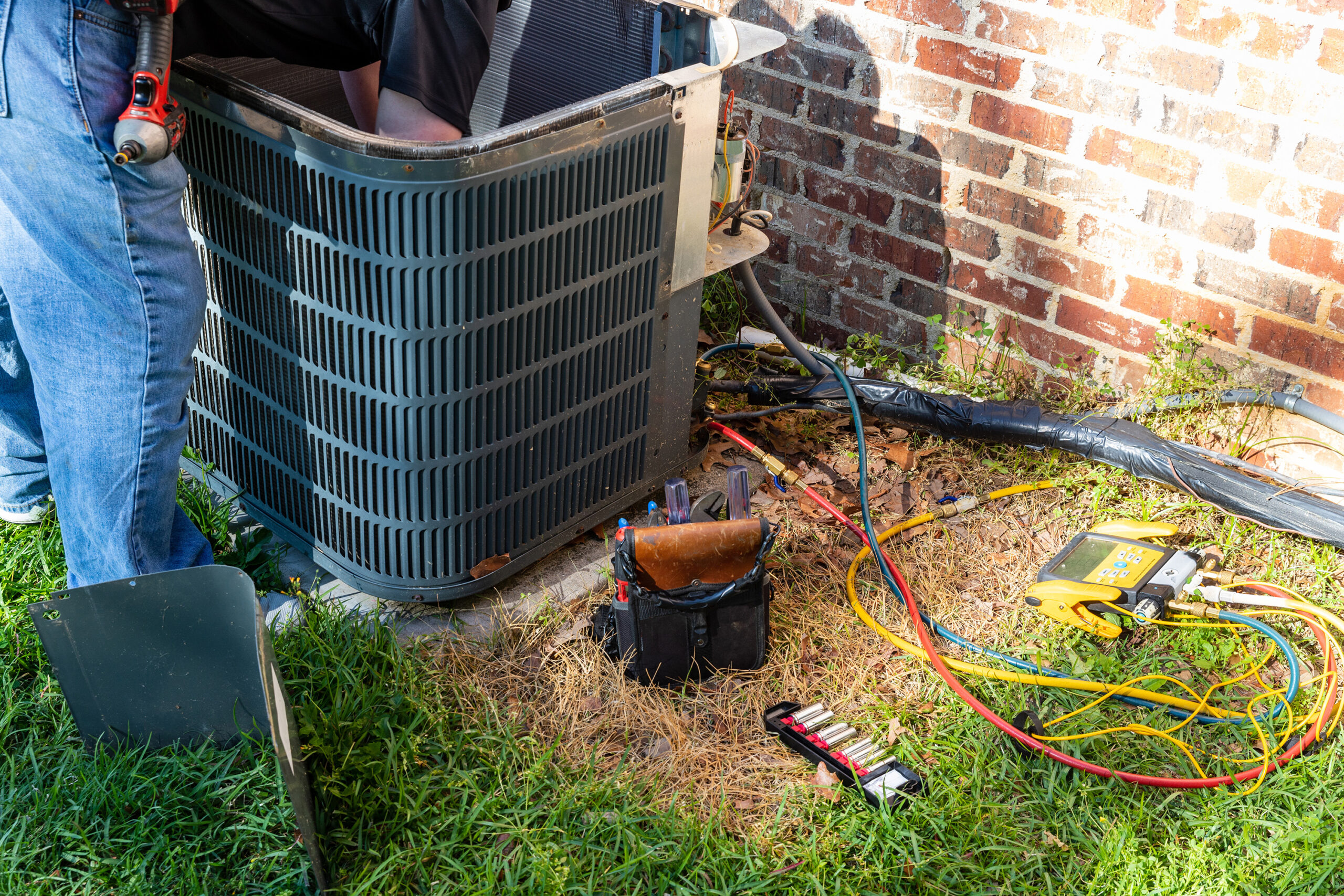Common Questions about Heating, Cooling, and Plumbing
1. What Size Air Conditioner Do I Need?
Simply put, your home’s air conditioning is just like a pair of shoes. You have a size that fits! Anything too small or too large is uncomfortable. The proper way to size an air conditioning is to have a professional contractor perform a Manual J Load Calculation. This calculation takes into consideration many factors including cubic foot space of the dwelling, construction types, window types, shade, and others to determine the amount of air exchanges (measured in tons) needed to properly cool a home.
2. What Do SEER, MERV and Other Air Conditioner and Heating Ratings Mean?
- SEER: Seasonal Energy Efficiency Ratio
- SEER 2: Energy Star’s new Seasonal Energy Efficiency Ratio guidelines established 1/1/2023.
- MERV: the measure of an air filter’s effectiveness at filtering particles out of the air.
- HVAC: Heating, Ventilation, Air Conditioning
- HSPF: Heating Season Performance Factor
3. How Do I Know If the Warranty On My Furnace, Air Conditioner or HVAC System Is Still Valid?
Check the unit’s label to find out the date it was manufactured. The standard warranty is five years, but this varies. A call to the manufacturer will probably give a definite answer. They may be able to tell based on the manufacture date or may have the serial numbers for all units under warranty in their computer system.
4. Should the Indoor and Outdoor Units Be Replaced at the Same Time?
Yes, the indoor and outdoor HVAC units should be replaced at the same time. The reason for this is that the two units are designed by the manufacturer to work together to achieve the published output and efficiency. With today’s rapid changing technology, some new units simply cannot communicate with dated equipment.
Further, if one unit is so old that it needs to be replaced, it means the other half of the system is likely equally as old and due to be replaced. Air conditioner technology has increased significantly over the last 10 years and not replacing both units will lose out on some of those advances.
5. When is it Time to Replace My HVAC System?
Energy Star suggests considering replacement if your existing system is 10 years or older, and/or you have frequent repairs and your energy bills are going up.
6. How Can I Improve Air Quality?
There are many products available to improve the Indoor Air Quality in your home. Common problems include allergies, smoke, pet dander, dry air, humidity, mildew, odors, viruses, bacteria, and poor air circulation. Most of these common problems can be reduced and sometimes eliminated altogether. Typically, the small 1” thick filter commonly found in HVAC systems is not enough. A properly installed whole home air filter, air cleaner, air scrubber, humidifier, or de-humidifier can easily, and affordably, correct these issues.
7. What Are My Options If I Frequently Run Out of Hot Water?
Not having enough hot water can be traced back to many factors. Have you added additional fixtures or hot water users to the home? How long has this been an issue? Having your existing water heater diagnosed by a licensed professional can determine if your water heater needs repairing, or if you should consider replacing with a larger one, or even a tankless water heater.
When a ventilation system is installed, the air is circulated continuously and the pollutants are constantly expelled and fresh air is brought in. When combined with an air conditioner, only a low volume unit is needed and when placed properly, the increase in energy usage is minimal.
8. What are the Benefits of an Air Conditioning and Heating Tune-Up?
One of the biggest benefits of an air conditioning tune-up is spotting potential problems early and avoiding more expensive repairs later. A failing part that could cause other parts of the system to burn out or even create a fire hazard can be quickly replaced. Plus, if the problem is spotted during the tune-up, it will be fixed before the air conditioner suddenly breaks during peak air conditioning season and avoid expensive emergency repairs or days without air conditioning.
A tune-up can also extend the life of your system and reduce utility bills. A clean air conditioner without debris restricting airflow runs much more efficiently. Air flow restriction is the most common cause of premature equipment failure. Ensuring that refrigerant levels are optimal also ensures optimal performance. This also increases comfort levels. An overtaxed air conditioner will not be able to cool a home fully on the warmest days and could possibly even freeze up and shut down completely. Learn more about our G-Club VIP Maintenance Membership for yearly tune-ups.
9. Should I Have My Plumbing System Inspected Annually?
Yes! Leaking pipes, drains and fixtures can not only cause your utility bills to rise, but can cause major damage to your home. Water damage from leaks is one of the leading causes of claims to homeowners’ insurance. Having a licensed plumber assess the condition of your pipes, drains and fixtures annually, can give you the peace of mind knowing that everything is functioning as it should. They will be able to tell if something needs fixing now, to avoid a sudden catastrophe down the road. Learn more about our G-Club VIP Maintenance Membership for yearly plumbing inspections.
10. How Do I Know If I Need Water Treatment?
Answering yes to any of these questions could mean its time to consider a water filter or a water treatment system. Does my water have an unpleasant taste or odor? Do I have scale buildup around my shower head and other fixtures? Do I have staining in my sinks, toilets, and tubs? Have you experience pin hole leaks or corrosion in pipes? Having a water quality test performed can pin-point the cause of many of these issues and most can be corrected by water treatment. A free water quality test is included with our Plumbing G-Club VIP Maintenance Membership.
Heating & Cooling Services
Air Conditioners
Upgrade your cooling with a new, energy-efficient air conditioner expertly installed for maximum comfort and savings.
Heat Pumps
Efficient heating and cooling in one system—we install, maintain, and repair heat pumps for year-round comfort.
Heating Services
Stay warm all winter with expert heating solutions, including repairs, maintenance, and energy-efficient system installations.
AC Tune-Ups & Maintenance
Routine AC tune-ups help extend system life, reduce energy costs, and prevent unexpected breakdowns.
Air Conditioning Repair
Fast, expert air conditioning repairs to restore cool comfort to your home, no matter the issue.
Financing Options
Make comfort affordable with flexible financing options that work with your budget—choose plans with up to 0% interest for 60 months. Terms apply!






